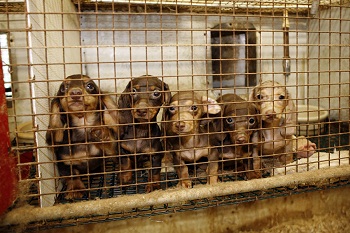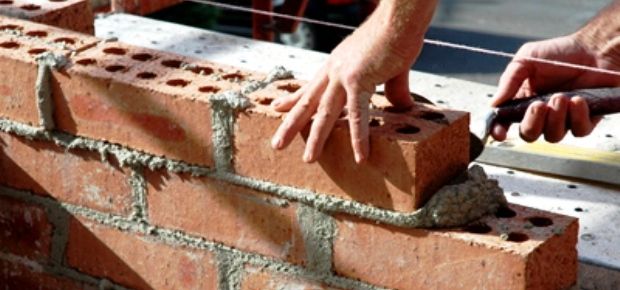
The Leader of the Liberal Democrat Opposition Group on Oldham Council, Councillor Howard Sykes MBE, has formally submitted the Liberal Democrats Groups response to the recent GMSF consultation.
Councillor Sykes has also urged residents to make sure they also make their views known and respond before the 16 January deadline.
“People are angry and very passionate about the proposed loss of vast tracks of our green space and Green Belt but must make a response if they are to have any chance of having their voices being heard,” stated Councillor Sykes.
The email address is: GMSF@agma.gov.uk, The postal address is: Greater Manchester Integrated Support Team, PO Box 532, Town Hall, Manchester M60 2LA.
Copy of the letter is below:
Greater Manchester Integrated Support, PO Box 532, Town Hall, Manchester M60 2LA
Dear Greater Manchester Spatial Framework Team,
Re: OLDHAM COUNCIL LIBERAL DEMOCRAT GROUP – RESPONSE TO DRAFT GREATER MANCHESTER SPATIAL FRAMEWORK
The Oldham Council Liberal Democrat Group and the Official Opposition on Oldham Metropolitan Borough Council, wishes to make this collective submission in response to the consultation on the Greater Manchester Spatial Framework (GMSF).
The ten local authorities in Greater Manchester have drawn up plans to meet the projected future need for 4,000,000 m2 of industrial and warehousing premises and 227,000 new homes in the county by 2035. The vision projects a population growth of 294,800 and 199,700 additional jobs across Greater Manchester.
The consultation document provides insufficient analysis of how these deductions for population and economic growth have been made and therefore is devoid of justification for the additional land demands. Further specific clarification of the rationale would be welcome and is desperately needed.
The plan requires 690,000 m2 industrial and warehousing space and 13,700 homes in the Oldham Borough. Of these 13,700 homes approximately 3,000 will be located on sites in Royton, Shaw and Crompton and other vast tracts of land (Green Belt) are designated for industrial development.
To the Liberal Democrat Group and to many of our constituents, these plans represent a massive and inequitable land grab in Royton, Shaw and Crompton with the devastation of our local Green Belt and OPOL (Other Protected Open Land).
It is proposed that new properties will be built at Cowlishaw; in the Beal Valley; Rushcroft; the Whitfield Farm area over towards Newhey; and around Gravel Hole and Low Crompton.
Adjacent sites at Broadbent Moss (Oldham), Hanging Chadder (Oldham) and land East and West of the A627M (Rochdale and Oldham) if developed would also see a significant erosion of the Green Belt land in the so called ‘Northern Gateway’.
It is the view of the Liberal Democrat Group that there is no justification for the construction of a large number of properties (or indeed any properties) on Green Belt or OPOL before new homes are first built on Brownfield sites, on sites where planning permission for housing development has already been granted and upon the many derelict and unloved sites in our town centres and districts.
It is unfortunate that the consultation document does not identify the many such sites that are available across the Borough other than those that currently sit outside Oldham’s Local Development Framework (formerly the Unitary Development Plan).
Furthermore it is our view that conversions should take place so empty mills and factories can be used for housing (buildings and/or sites); as can land marked for industrial/commercial use; and bring the large number of empty homes back into use.
All this should be done before any consideration is given to future development on Green Belt or OPOL and this development for Oldham should, in our view, be apportioned better in the Metropolitan Borough rather than disproportionately in Royton, Shaw and Crompton as at present.
The draft GMSF readily identifies the need for a very significant investment in transport infrastructure. Improved transport is a critical obstacle to be overcome to ensure the success of the expansion desired in the GMSF. Many of the strategic allocations are sited near our motorway corridors, ostensibly to take advantage of existing networks.
However, our existing motorways are frequently constrained by high levels of congestion resulting in unacceptable journey times and additional traffic jams on feeder and local roads. The projected growth of industrial warehousing, office space and new homes will require monumental investment in transport infrastructure. It is of paramount importance to ensure that the transport infrastructure is in place before other building takes place.
All the sites identified, especially those in Royton, Shaw and Crompton are devoid of good vehicular access and there is no obvious way to make the necessary improvements.
Cowlishaw has no acceptable roads leading into the proposed site. The topography around the Whitfield Farm area makes it difficult to envisage an elegant solution to site access. Similarly the Beal Valley site is currently served only by a narrow road and the desire to facilitate access to this site by enhancing links to Shaw and Crompton Metrolink Station seem incredulous; the only current access, via Beal Lane, is saturated with existing traffic and HGV movements to and from existing businesses which are large National/European distribution centres.
The increase in population will necessitate provision of additional services. The GMSF does not appear to adequately address available funding to deliver on these requirements.
In Shaw and Crompton, the necessary infrastructure to support even our existing population is lacking. We have primary schools that are already overcrowded or full; a secondary school that is falling apart; a dilapidated Health Centre that is near cardiac arrest; no swimming facilities or dry leisure provision; precious few youth facilities and no municipal tip.
Under the proposals, 3,000 homes will be built in Royton, Shaw and Crompton for growing families. These new residents will need more primary and secondary school places; more GPs and dentists; leisure and shopping facilities; and new highways and more buses and trams to get them there.
Now doesn’t Oldham Council’s decision to close and not replace the Crompton Swimming Pool and Gym look a little short-sighted given the number of new young residents that will need to learn to swim and the number of adults that will want to keep fit.
An important vision of the GMSF is that Greater Manchester becomes as well known for the quality of its environment as for its economic success. Green Belt plays a role in this but there are important green spaces, parks, rivers and canals in the heart of our urban communities which are equally valuable. The protection and enhancement of our blue and green infrastructure is a central theme of the strategy.
In view of the above aspiration it is difficult to understand why the specific green sites in Royton, Shaw and Crompton have been proposed. There has been a lack of balance in the review and failure to give necessary weight to environmental and quality of life issues.
The vast majority of sites are notably attractive open spaces that provide pleasure, relaxation, and health benefits to local residents as well as our wider community. The sites include public footpaths enjoyed by many dog-walkers, ramblers and walking groups. Many of the Public Rights of Way are important to the historic Shaw and Crompton ‘Beating of the Bounds’ and Crompton Circuit walks. These locations also provide one of the few opportunities for people to undertake horse riding in safely which is particularly of concern for young and inexperienced riders.
These sites are further enhanced by a diverse range of flora and fauna and importantly provide those ‘green lung’ areas which minimise urban sprawl between built up conurbations.
Two of the sites include small but nevertheless important rivers within their boundaries; the Rivers Irk and Beal (Cowlishaw and Beal Valley respectively) help to prevent flooding and are attractive features of the two sites.
Additionally the Cowlishaw site is renowned for upwell of numerous local springs and given to serious flooding. The area has deep unstable subsoil that will require significant pilings leading to excessive construction costs.
Cowlishaw and Beal Valley also contain Sites of Biological Importance and these must be retained.
In regards to Saddleworth there is only one Strategic Site in the Spatial Plan, Robert Fletcher’s in the Greenfield valley, which has long been seen as needing a strategic view and plan to avoid piecemeal development. Indeed Saddleworth Parish Council presented an outline plan for the valley some years ago and has done so again in response to the spatial proposals.
The plan proposes some 120 houses and 100 ‘lodges’ which one assumes, given past happenings, would become houses for some 220 residences. These houses given the lack of public transport or facilities and the preference for high value housing would do nothing to lessen the need for affordable housing in the area.
The topography and lack of transport links and the high value of local scenery makes other large sites hard to find in Saddleworth especially given the presence of the Peak National Park there.
Saddleworth is, however, very vulnerable to the number of other smaller sites, some of them astoundingly unsuitable, offered for development in addition to those in this strategic framework.
The Green Belt and open spaces within Oldham are areas of pleasant natural beauty that make us unique in Greater Manchester.
The Oldham Council Liberal Democrat Group firmly believes that our precious Green Spaces should be protected.
The Group strongly advocates that no building on Green Belt or OPOL be undertaken until developments are first undertaken on Brownfield sites, on sites where planning permission for housing development has already been granted, and upon the many derelict and unloved sites in our town centres and districts; and also after the conversion of mills and factories into housing use and after every empty home has been brought back into use.
Only when all of these things have been done should we then, and only then, consider developing any part of our precious Green Belt.
Yours sincerely – Howard Sykes








